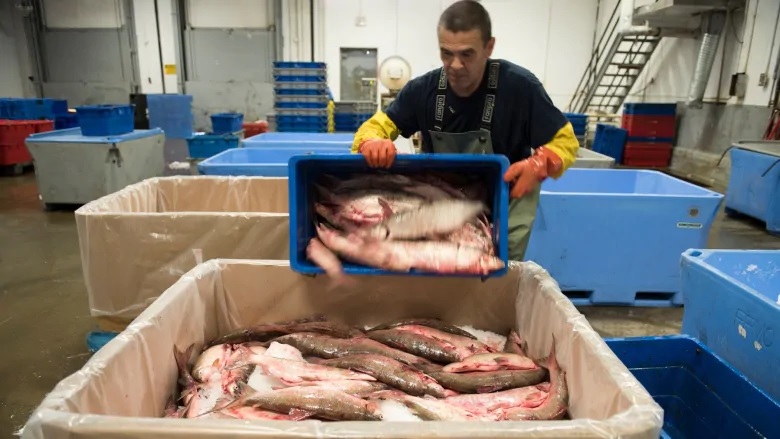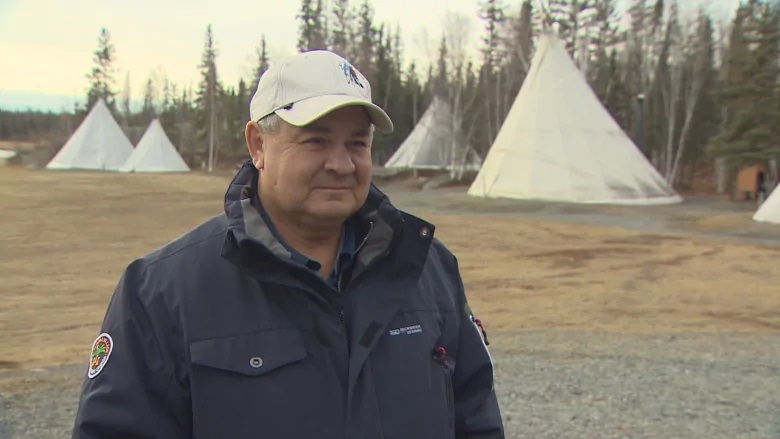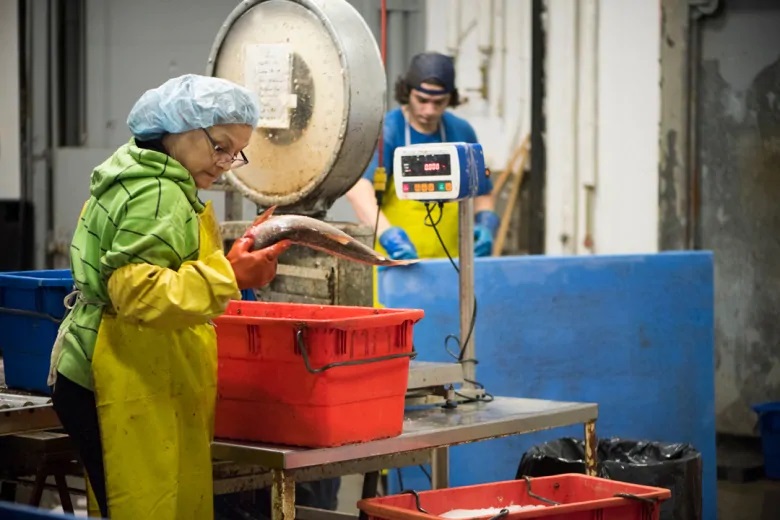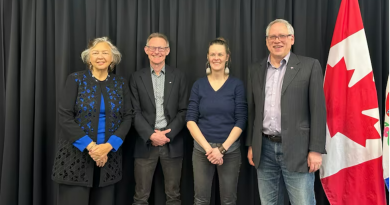Fishers in Canada’s Northwest Territories complain of excessive government control

Though a new fish processing plant is being built in Hay River, N.W.T., there’s a growing need to rebuild relations between the territorial government and local fishers.
The fishers are accusing the government — in particular the Department of Industry, Tourism and Investment (ITI) — of taking a paternalistic approach to fishermen’s businesses, despite a recent independent report recommending fishers be given more control of their industry.
Don Morin, a Yellowknife businessman and former N.W.T. premier, is advising the Northwest Territories Fishermen’s Federation, the organization that represents fishers. Morin is also trying to get into the commercial fishing business. He says fishers are hesitant to criticize the ITI department because they rely on funding from its Fish Harvesters Support Program.
Morin said fishers and the federation want to have control of the new processing plant through their newly-formed Tu Cho Fishers Co-operative.
“That’s what’s supposed to happen, but it seems like the regional director in Hay River wants to control everything and doesn’t communicate well with the fishermen.”

The territorial government recently advertised for a manager of commercial fish operations. In the advertisement, it said as the new fish plant comes into operation, the manager would transition to general manager of the plant and become an employee of the Tu Cho Co-operative. The manager would report to ITI’s regional superintendent.
Morin said the territorial government’s regional director for the South Slave does not consult the N.W.T. Fishermen’s Federation.
“You should be listening to people,” Morin said. “You’re being paid to work on people’s behalf. If they raise concerns, treat them as legitimate concerns and try to address them. That should be the job of a civil servant, but it doesn’t seem to be his job.”
An official with the department said the regional director is on vacation. The official was unable to determine when he will be returning. No one else at the department was available to comment on the concerns raised.
In an email, the department said: “In spite of the fact the department has held meetings, shared our plans, and provided information ahead of time throughout this process, based on some concerns from the N.W.T. Fishermen’s Federation we received recently, we acknowledge there are some misunderstandings afoot.”
New fishing venture planned
Morin, the owner of popular aurora tourism business Aurora Village, said he wants to set up a processing plant near Yellowknife and sell fish from Great Slave Lake to southern markets. Critical to that plan is an exemption from the requirement to sell through the Freshwater Fish Marketing Board, which governs the Freshwater Fish Marketing Corporation (FFMC) — a Crown corporation.
Morin says the plan has the support of the majority of First Nations, Métis and MLAs he’s consulted. But he said ITI Minister Wally Schumann has written him and told him the department does not support an exemption. Morin says without ITI supporting an exemption, it is unlikely he will get one.
“I kind of wonder what’s going on. Here we are as Indigenous people, trying to harvest our own resource, create an economy, try to create jobs for our people, invest our own money — we don’t want any money from the government — and they don’t support us.”
In an emailed statement, Schumann said the territorial government has “no jurisdiction to provide an exemption,” since the Freshwater Fish Marketing Corporation was established under federal legislation. He said they’re awaiting a recent review by the Department of Fisheries and Oceans on the future of the corporation.
“We need to await the outcome of that review before we can decide what our future role with the corporation will be. We do not expect Canada to indicate its next steps on the FFMC before the upcoming federal election.”

Another recent move did not help smooth things between fishers and the department. Bert Buckley Sr. was the only N.W.T. fisher on the board of the Freshwater Fish Marketing Corporation. He’s served on it for more than a decade. But when his most recent term expired, he was replaced by ITI’s regional director — the same person Morin said is not listening to or addressing the concerns of fishers.
The move flies in the face of the first recommendation of an independent panel that completed a review of the Freshwater Fish Marketing Corporation earlier this year. The panel recommended an immediate increase in the participation of fishers in the corporation and improved communication between the corporation and fishers.
In an email response, ITI said, “for now, we feel our representation on that board is essential to protect the interests of the territory as we move through transition.” The transition the department was referring to is the move toward a new regime for managing fish marketing, as recommended in the independent review of Freshwater Fish Marketing Corporation.
The N.W.T. is the only remaining jurisdiction active in the corporation. All of the provinces that were members either withdrew or closed their fisheries, though fishers in some of the provinces have signed contracts to supply fish to the corporation.
Related stories from around the North:
Canada: Community in Arctic Canada seeks ways to grow thriving turbot industry, CBC News
Finland: What a Saami-led salmon rewilding project in Arctic Finland can teach us about Indigenous science, Eye on the Arctic
Greenland: Canada ratifies international moratorium on commercial fishing in the High Arctic, Radio Canada International
Norway: Is Norway’s farmed salmon as healthy as we think?, The Independent Barents Observer
Russia: Barents Sea cod catch should be cut, researchers say, The Independent Barents Observer
Sweden: Environmentalists seek solutions to ghost net problem in Baltic Sea, Radio Sweden
United States: U.S. gov clears path for genetically engineered salmon, Alaska Public Media



